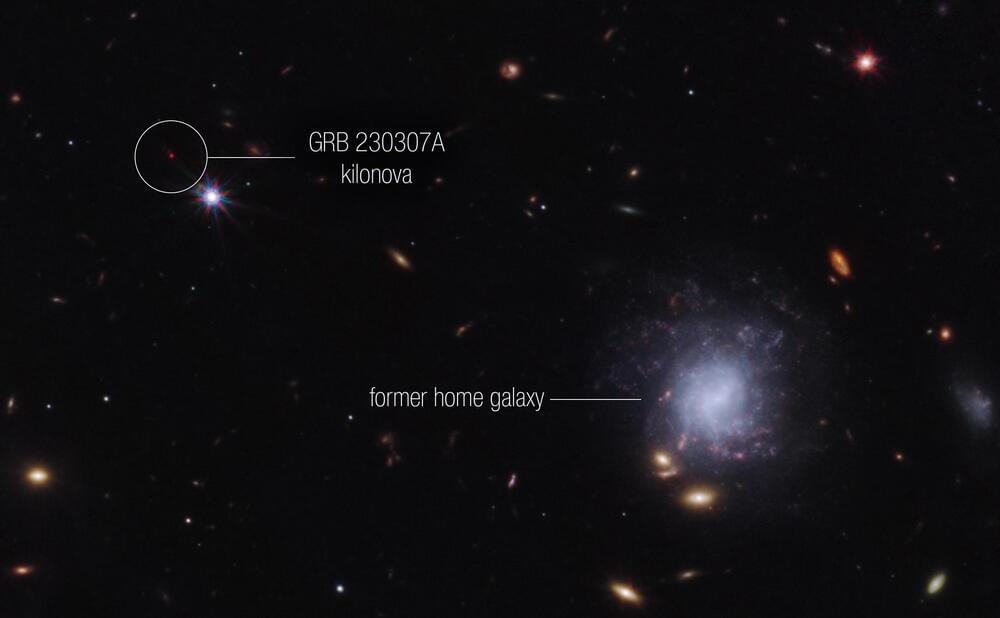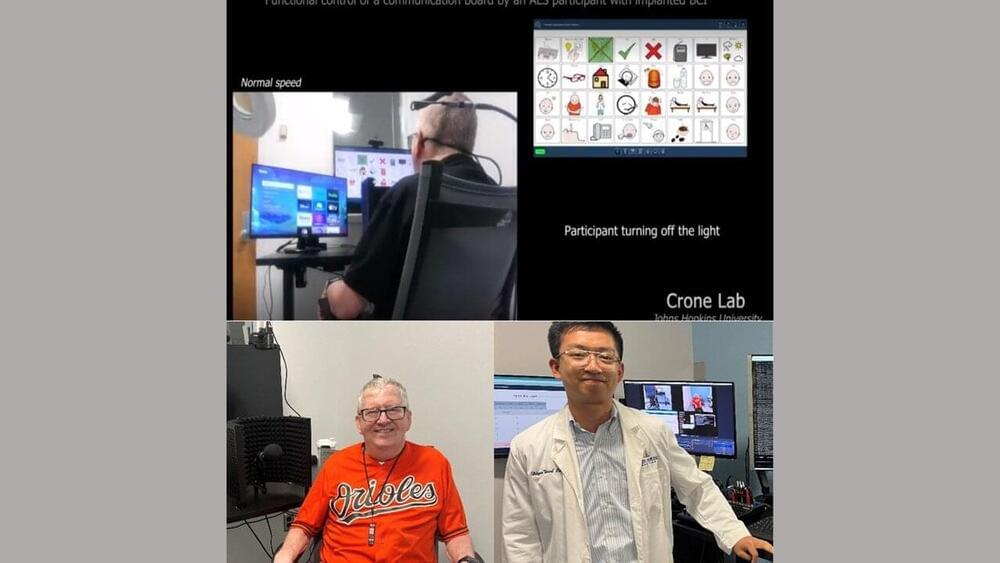In March of this year, astronomers detected a brilliant burst of gamma rays more than a million times more luminous than our entire galaxy. It was the second brightest gamma-ray burst (GRB) ever detected and lasted some 200 seconds.
A study published today in Nature reports that this object was a collision of neutron stars one million light-years distant. What’s more, thanks to the James Webb Space Telescope (JWST), astronomers were able to see that the blast also served as a cosmic chemical factory, forging some of the rarest chemicals found on Earth.
“The most robust evidence that the merger of two neutron stars caused this burst comes from its kilonova,” says lead author Andrew Levan of Radboud University in the Netherlands, referring to the optical and infrared light coming from the uber-sized explosion.







